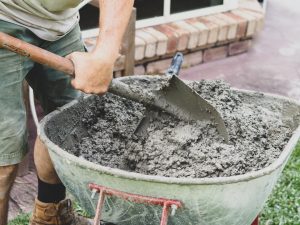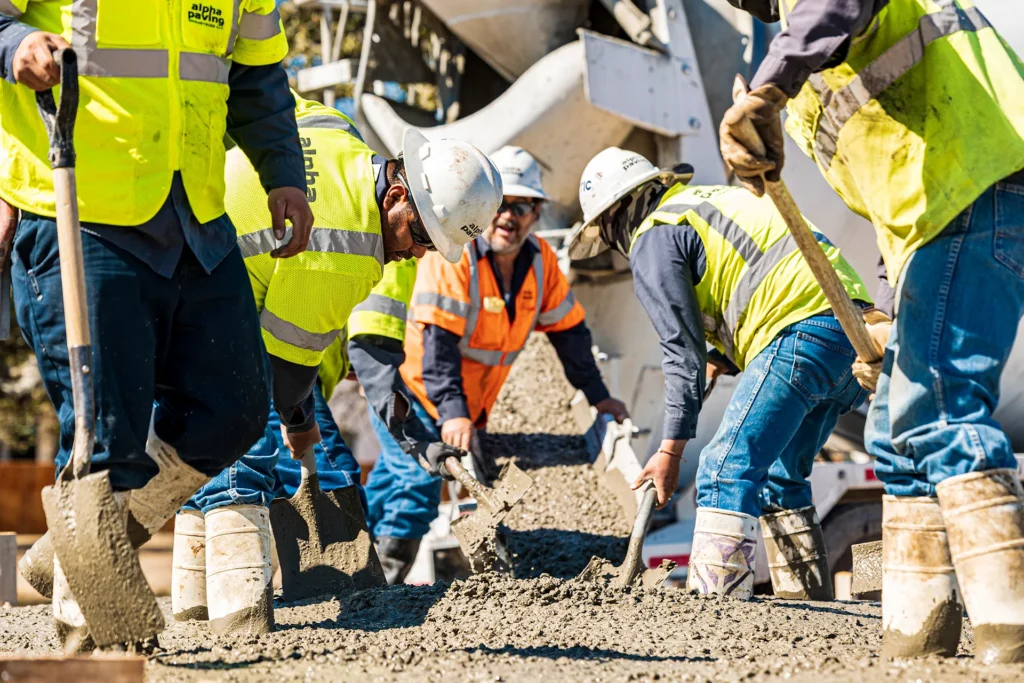Builders have used concrete for more than 6,000 years and possibly longer. However, there have been many different types of concrete mixes developed, so modern concrete is not the same as the concrete that the Romans used in their building products. During the years between the fall of the Roman Empire and the dawn of the industrial age, concrete became less common and saw only sporadic use. By tonnage, the global use of concrete is double the combined total of steel, aluminum, plastic, and wood. Therefore, it is relatively safe to assume that concrete pourers are at work somewhere within the United States on virtually any day, constructing foundations for skyscrapers and homes, building roads and dams, or creating dozens of other types of structural or decorative features.
What Materials Are in a Typical Concrete Mix?
Although local concrete companies employed a wide range of recipes during the 1800s, the mixture has become fairly standardized. There are three basic elements: aggregates, binder, and water. Aggregates include crushed stone, gravel, and sand. Different mixes require aggregates of different sizes. The sieving or screening process sorts the material by size to ensure that only those meeting the specific requirements for the job will make it into the mix. Typically, the binder is cement, a mixture of gypsum, limestone, clay, and other chemicals or minerals. Concrete companies usually do not add water to the mix until they are certain that the other materials are in their proper proportions. The ratio of water to cement is extremely important. Most concrete specialists recommend that a mix of water content of 15 and 20 percent, a cement content of between 10 and 15 percent, and an aggregate content of between 60 and 75 percent.
Do Concrete Contractors Prepare Their Own Mixes?

There are products available that contain the dry ingredients to prepare a concrete mix. However, manufacturers target these products to homeowners or those who need only a small amount of concrete. Professional concrete slab contractors will almost always choose to have a central-mix concrete plant deliver the slurry directly to the job. Mixer trucks keep the slurry from hardening prematurely and ensure that the aggregates do not fall out of suspension.
How Do Contractors Install Concrete?
Virtually all concrete slurries are introduced into forms. Prior to the arrival of the concrete mix, workers will handle any grading or leveling needed, build the forms, and place reinforcing mesh or rebar if required. Once the concrete arrives, work must proceed quickly. The workers must ensure that the slurry is evenly distributed or properly shaped. They will then apply the finish, which may be textured or smooth.
Does Alpha Paving Install Concrete?
Alpha Paving Industries is a full-service concrete contractor offering both installations and concrete repair. We also offer a full line of asphalt services, including paving, overlays, crack repair, sealcoating, milling, and patching. We also offer parking lot striping and marking, road construction, parking lot signs, and thermoplastic markings. We have a reputation for providing exemplary work and outstanding customer service at affordable rates. For a free quote, call our office at 512-677-9001 or fill out the online form.




